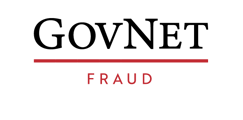In the battle against fraudulent activities within government organisations, robust policies play a pivotal role in setting clear guidelines, procedures, and controls. This blog post delves into the significance of policy development in establishing frameworks that prevent and detect fraudulent activities, ensuring transparency, accountability, and integrity in the operations of government agencies across the UK.
Understanding Policy Development
Policy development involves the systematic process of drafting, reviewing, and implementing guidelines, rules, and procedures to govern the activities of government organisations. In the context of fraud prevention, policies are designed to outline expectations, define responsibilities, and establish mechanisms for identifying, reporting, and addressing fraudulent activities.
Establishing Clear Guidelines and Procedures
Effective policies provide clear guidance on expected behaviours, ethical standards, and compliance requirements within government organisations. By articulating expectations and outlining procedures for handling sensitive information, financial transactions, and procurement processes, policies help employees understand their roles and responsibilities in preventing and detecting fraud.
Implementing Internal Controls and Checks
Policies serve as a framework for implementing internal controls and checks to safeguard against fraudulent activities. Through policies such as segregation of duties, approval processes, and access controls, government organisations can establish layers of oversight and accountability to deter, detect, and mitigate fraud risks across various functions and departments.
Promoting a Culture of Compliance
Well-defined policies contribute to fostering a culture of compliance within government organisations, where adherence to rules and regulations is prioritised. By embedding ethical principles, accountability mechanisms, and reporting channels into policies, organisations can promote transparency, integrity, and trust among employees, stakeholders, and the public.
Enhancing Fraud Detection Mechanisms
Policies play a crucial role in enhancing fraud detection mechanisms by establishing protocols for monitoring, analysing, and reporting suspicious activities. Through policies on data analytics, whistleblower protection, and incident response, government organisations can strengthen their ability to identify red flags, investigate potential fraud incidents, and take corrective action promptly.
Adapting to Evolving Risks and Regulations
Policy development is an iterative process that requires ongoing review and refinement to adapt to evolving fraud risks and regulatory requirements. By staying abreast of emerging threats, changing regulations, and best practices in fraud prevention, government organisations can update their policies accordingly to ensure effectiveness and compliance.
Collaboration and Consultation
Effective policy development involves collaboration and consultation with key stakeholders, including senior management, legal advisors, internal auditors, and external experts. By soliciting input, feedback, and buy-in from diverse perspectives, organisations can ensure that policies are comprehensive, practical, and aligned with strategic objectives.
Training and Awareness
Policies are only effective if employees are aware of them and understand their importance. Government organisations should invest in training and awareness programmes to educate employees about fraud risks, policy requirements, reporting procedures, and the consequences of non-compliance, fostering a culture of vigilance and accountability.
Conclusion
Policy development is a cornerstone of effective fraud prevention in government organisations, providing the framework for establishing clear guidelines, procedures, and controls to prevent and detect fraudulent activities. By crafting comprehensive policies that promote transparency, accountability, and integrity, government agencies can safeguard public resources, maintain public trust, and uphold the highest standards of governance in the UK.

Nicole Lummis
After a career in Project Management, I realised how important it was for me to pursue a career with a more creative career path. I have a passion for creating engaging digital content whether through written content or the use of image, graphics or videos.




